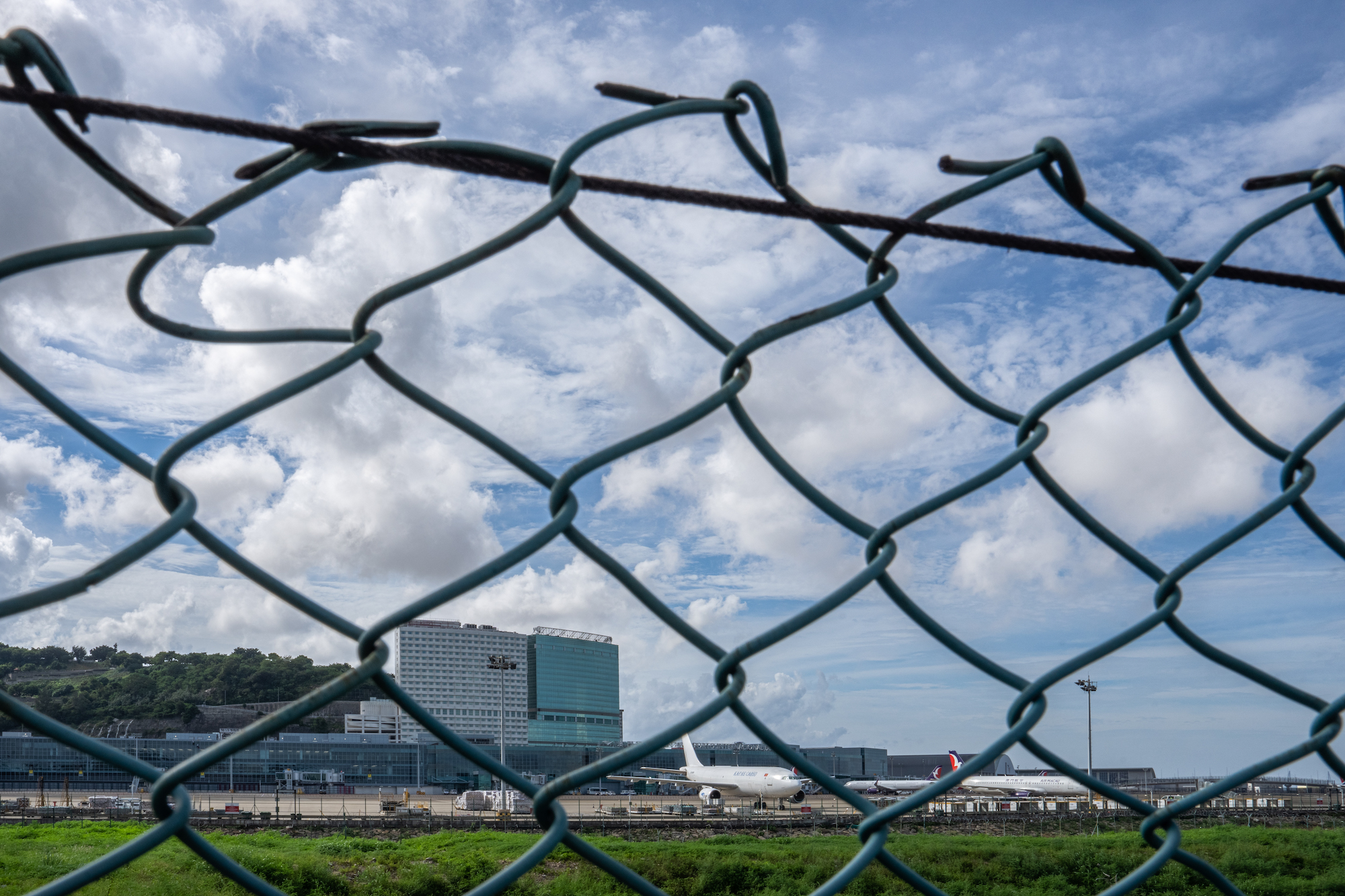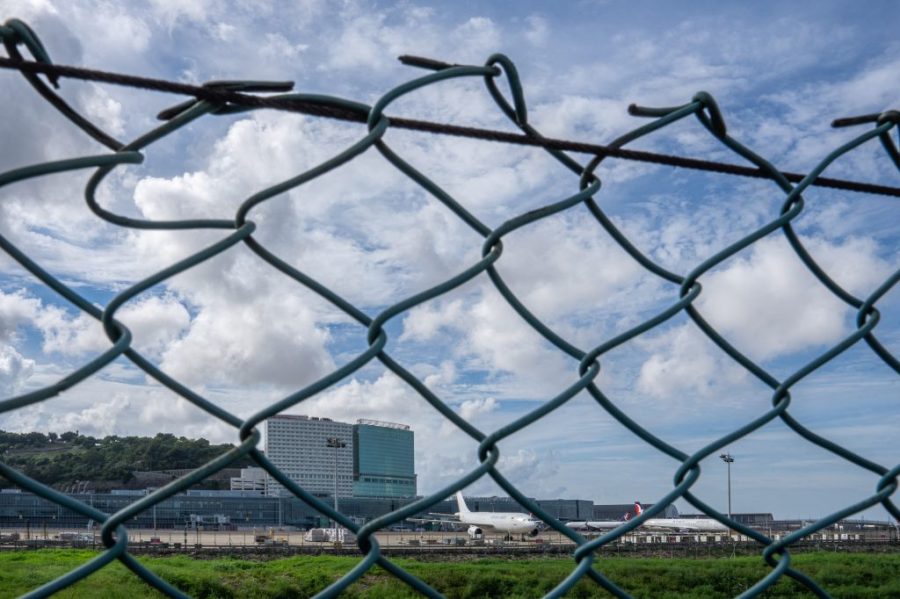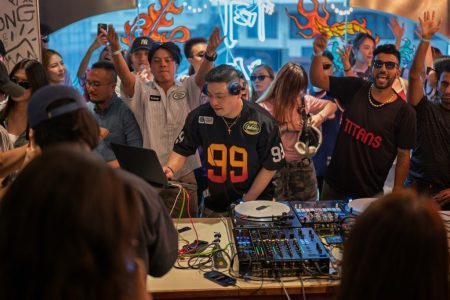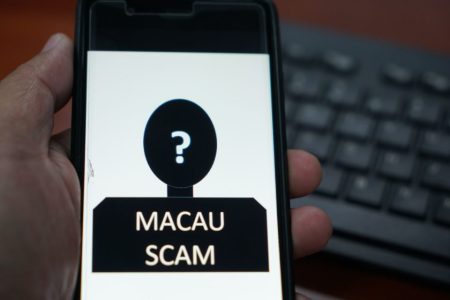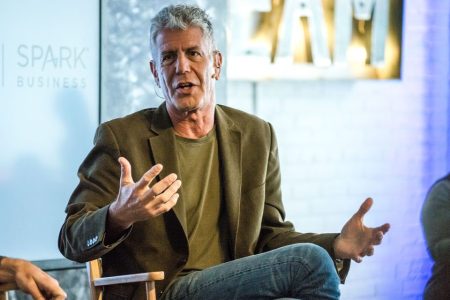Cold food for weeks on end. No fresh air. Arbitrary quarantine extensions. A child denied antibiotics to treat a stomach illness. Families awoken in the middle of the night to be transferred to another facility without warning.
Few would expect such treatment when undergoing hotel quarantine in an aspiring international hub of tourism like Macao. After over two years of Covid-19 travel restrictions, residents see the city’s enduring quarantine policy as a non-negotiable reality.
While the rest of the world opens up, Macao remains one of the last places on Earth enforcing a strict quarantine for arrivals. Even neighbouring Hong Kong has ditched quarantine in favour of a short period of medical surveillance, which experts say is not possible for Macao since the city relies so heavily on mainland China tourism.
Currently, only travellers from mainland China can enter the city without undergoing quarantine. Those entering the city from anywhere else must quarantine in a designated hotel for seven days followed by three days of self-health management.
At best, the experience is challenging both mentally and physically. But for many, it can be a traumatic experience where individuals feel helpless and stuck in a rigid system.
Macao News spoke with three individuals who were quarantined between July and September. All spoke of rules that seemed to change on a whim, as well as a lack of transparency and unexpected extensions that they said evoked feelings of fear, paranoia and uncertainty.
All have been given pseudonyms to be able to talk freely about their experiences. Their stories have been edited for length and clarity.
Andrew: Losing hope during 24 dark days in quarantine
“I have a new appreciation for people who are incarcerated.”
Though Andrew didn’t know it at the time, the final day of visiting family abroad would be his last moment of joy for nearly a month.
On a layover in Singapore, Andrew, an educator who was returning to Macao with his wife and son, learned that his family lacked a recently mandated document. “It was a new requirement by the airport authority, only published on the airport authority’s website, requiring you to get permission from a minor before they can travel with you,” he says.
After a mad scramble, he managed to have a travel agent fax the document to him in Singapore, and the family was cleared to fly. But the moment would portend more turbulence to come.
After touching down in Macao, all 80-plus passengers on their plane spent 12 hours waiting at the ferry terminal for the results of their nucleic acid tests.
“The toilets were getting filthy, and we’d run out of tissue paper. It was not pleasant.”
They were eventually transferred to a designated quarantine hotel. But the next morning, Andrew’s son tested positive, as did his wife. Both were just a hair below Macao’s 35 cycle threshold (commonly known as CT values), which help to indicate a person’s viral load based on the number of cycles a PCR machine needs to run in order to identify the virus in a given test specimen. The lower the CT value, the more infectious a person is thought to be.
“I didn’t want to leave them alone. I said, ‘Wherever they’re going, I am, too,’ but no one would tell us where we were going.”
Authorities transferred the family to another hotel for asymptomatic patients, where the situation quickly worsened. A day later, Andrew’s son tested negative, but he had begun to suffer from a stomach bug he had picked up while travelling. The family had left his medication in their previous room, however, and couldn’t retrieve it.
“The doctor said he should be fine, but then my son got worse. He started to have blood in his stool, and I was getting really panicked. But the doctor said he still didn’t need antibiotics and just arranged for him to have congee.” (The child was eventually given antibiotics and his condition improved rapidly.)
The three hunkered down in their single room. Andrew would often work in the bathroom, “the only place I could find space.” Deliveries were not allowed, so they made do with a breakfast of a hard-boiled egg and a small sponge cake.
Eight days later, his wife tested positive again and was told she would have to remain in quarantine another 10 days.
“They suggested that I move to a separate room, and then I could be released in seven days. My wife at this point was getting really depressed. She was crying a lot, and I didn’t want to do that to her, or to my son, who was also beginning to feel really stuck in that hotel room,” he says.
While his wife and son were allowed to leave 10 days later after testing negative for Covid-19, Andrew had to stay behind another week. Even though he never tested positive since landing in Macao, he still had to undergo a mandatory isolation period for seven days following close contact with a person who tested positive.
In total, he spent 24 days in quarantine.
“I learned a lot about myself and how I cope in situations like this. I turned my attention to the needs of my wife and son. And my wife similarly turned her attention to my needs and my son’s needs. But every few days, I would have a real low,” he admits.
“I would go into the bathroom because I didn’t want to show my wife or my son how I was feeling. I would turn on the shower and sit there and cry, because I just was feeling so helpless and hopeless.”
Sara: A roller-coaster experience marked by paranoia, sadness and anger
“It makes me angry that they [government officials] can treat people in such an inhumane way.”
Like most, if not all, people arriving in Macao over the past 2.5 years, Sara’s experience started with a long wait – two hours in the plane on the runway followed by seven at the ferry terminal awaiting test results. She and her two daughters had an admirably zen perspective.
“When you go on holiday, you know what’s going to go down. In some sense, you make peace with it,” says Sara, who is self-employed.
But there are limits to everyone’s patience. After her family spent a collective total of 87 days in quarantine, Sara lost hers.
“We got tested the day after we arrived. My eldest was unwell. She had a fever. I knew that she was going to test positive,” Sara says. That started a 10-day stretch before she would be tested again; if she produced two negative results back-to-back after that, she would be released.
Sara then contracted Covid-19, and her own 10-day window began as well. In the meantime, her eldest daughter was released and went home for self-monitoring. But she tested positive again at home, which meant returning to quarantine. “[It] was considered a new case, so her 10 days started all over again.”
Sara’s husband and the family’s domestic worker – neither of whom had travelled with the rest of the family – also had to go to quarantine because the Health Bureau considered them high-risk contacts. Her husband elected to stay with their eldest daughter, adding another seven days to his isolation.
When Sara talks about Macao’s quarantine experience, she describes a miserable, Orwellian experience where the “food was always cold” and the stress continues well after release.
“They make you sit and wait [at the testing facilities] for three to six hours to get your results [after release]. Then they make you come back and do it again. At a certain point [when she had tested mildly positive according to Macao’s CT thresholds and had to wait for hours at the hospital for her results], I told them, ‘I’m going home. You know where I live. I guess you’re going to have to come and pick me up.”
“It’s such a psychological [mind game]. It makes me want to cry again. It’s just so stressful because you don’t want to be locked up again.”
By that time, Sara had endured 18 days; her elder daughter, 25; her younger daughter, 26; her husband, 18; and the family’s domestic worker, 5. Ultimately, Sara understands that Macao residents must abide by the city’s rules, but she believes transparency and order are essential to ensure residents feel safe and cared for.
“When I was home alone, because the kids and my husband were still in quarantine, I totally just broke down,” says Sara. “There’s no information; nobody makes clear what is going to happen next. The uncertainty of it all causes so much paranoia. It really screws with your mind.”
Anna: Arbitrary rules and extensions breed fear
“It kind of feels like you’re in a simulation.”
While Anna, who works at a luxury hotel, was visiting family abroad, Macao trimmed its quarantine from 10 to seven days. “When my mom and sister went overseas, they had to quarantine for 21 days, so this was amazing news the week before I returned.”
Her experience, which she describes as “boring”, started out smoothly. She had tested negative each day and was preparing to go home. Forty minutes before her release, however, Anna received notification that she would have to stay for another five days.
Not because she had tested positive, but rather because other people on the floor of her hotel had tested positive – a half-truth, as she later discovered.
“I didn’t understand, because I tested negative. The woman on the phone told me, ‘I’m very sorry. Very sad news.’ And I thought: ‘That’s not sad news at all. That’s the most absurd thing I’ve ever heard.’”
Over the next five days, she would continue to be tested daily, to the point that “my nose ached”. Despite the unexpected extension, the quarantine hotel denied her requests to wash her clothes, open a window for fresh air or borrow a vacuum cleaner.
“I have asthma. You’re in a closed room, you can’t open the window and there’s dust,” she says.
At the same, fear, paranoia, sadness and anger began to cloud her thinking. She scoured news sources to look for reports of positive cases in her quarantine hotel but found none.
Eventually, she learned that a hotel staff member had tested positive, not other people on her floor, as she had been told.
“There’s no transparency at all. I wondered, what if this guy was in contact with me and then I tested positive? Whose responsibility is that? I’ve entered Macao with a negative test. I’ve gone through seven days with only negative test results. But if suddenly I’m positive, I’ll have to stay up to maybe one month, two months in a hospital facility. And who’s going to pay my salary?”
Even after she had made it through the next five days, she recalls feeling “very scared until the last minute, until they told me I could leave the room.”
“It just feels like different people are making different policies. There’s no transparency or consistency. You can never know what’s going to happen to you – like what happens if you test positive, or if someone on your floor tests positive?”
“You’re put in such a vulnerable position. You’re not safe, even if you test negative.”
